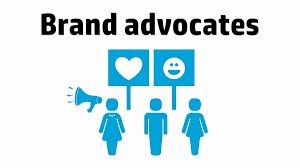
Responding to positive reviews is just as important as addressing negative ones. When dealerships acknowledge positive feedback, they:
- Reinforce customer appreciation
- Strengthen emotional connection
- Encourage repeat business
- Increase the likelihood of referrals
- Build long-term dealership loyalty
Customers who feel recognized are more likely to:
- Return for future service appointments
- Purchase their next vehicle at the same dealership
- Recommend the dealership to family and friends
- Continue sharing positive experiences online
A simple, thoughtful response to a five-star review adds another layer to the total customer experience. And dealership loyalty is built on the total experience, not just the sale.
Dealership Loyalty Is Built Through Total Customer Experience
Every interaction contributes to a customer’s overall perception of your dealership:
- Sales process
- Finance experience
- Service visits
- Personalization
- Follow-up communication
- Review responses
Even if you cannot fully resolve every unhappy customer’s concern, publicly demonstrating effort and accountability strengthens your brand credibility.
And for happy customers?
A simple “Thank you” reinforces the relationship and moves them one step closer to becoming a brand advocate.
Turning Reputation Into Long-Term Dealership Loyalty
If dealerships want sustainable growth, the focus must expand beyond managing complaints. True dealership loyalty requires:
- Proactive reputation management
- Consistent customer appreciation
- Strategic service retention programs
- Ongoing engagement beyond the sale
- Systems designed to turn satisfied customers into advocates
When you intentionally cultivate positive experiences and amplify them you create a stable base of loyal customers who generate recurring revenue for years. In today’s competitive automotive market, that isn’t optional. It’s a competitive advantage.
Dealerships that treat every review positive or negative as part of a long-term loyalty strategy will win more often than they lose. Because loyalty isn’t created by reacting to problems. It’s created by reinforcing positive relationships over time.
Building a Measurable Dealership Loyalty Strategy
Dealership loyalty doesn’t happen by accident.
It requires a structured strategy that connects reputation management, service retention, customer engagement, and lifetime value optimization into one measurable system.
When dealerships intentionally reinforce positive experiences, acknowledge customer feedback, and stay connected beyond the initial sale, they transform satisfied buyers into long-term advocates.
At LoyaltyTrac, we focus on helping dealerships implement scalable loyalty strategies designed to:
- Increase service retention
- Strengthen customer engagement
- Drive repeat vehicle purchases
- Improve online reputation signals
- Maximize lifetime customer value
Because sustainable growth in today’s automotive market isn’t built on transactions.
It’s built on relationships that last.
